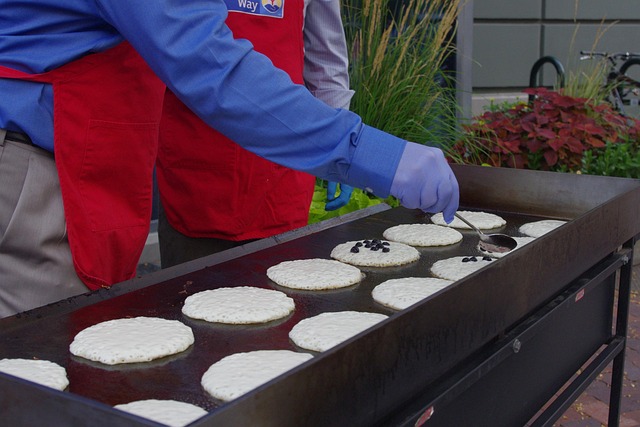How Long Do Frying Pans Last?

How long do frying pans last is dependent on many factors, which we will discuss in the following post.
Understanding Frying Pan Longevity
Frying pans, essential kitchen tools, can vary significantly in their lifespan depending on various factors. Knowing when to replace your frying pans not only ensures safety but also enhances your cooking experience. Let’s break down the typical lifespan of different types of frying pans, the warning signs that suggest it’s time for a replacement, and ways to care for them to maximize their duration.
Factors Impacting Lifespan
Several factors influence how long frying pans can last. Here are some key aspects to consider:
- Material: Different materials affect durability. Stainless steel, cast iron, non-stick, and copper frying pans all have unique properties that can influence their longevity.
- Frequency of Use: How often you cook with your frying pan can determine its wear and tear. Regular use usually results in a shorter lifespan compared to occasional cooking.
- Care and Maintenance: Proper cleaning and maintenance can greatly extend the life of your frying pan. Not all pans can be treated the same way, so knowing the right techniques is essential.
Types of Frying Pans and Their Expected Lifespan
Let’s look at some common frying pan types and their expected longevity.
1. Non-Stick Frying Pans
Non-stick frying pans are popular for their easy cooking surfaces and minimal cleaning requirements. Typically, these pans can last anywhere from 3 to 5 years with proper care.
- Care Tips:
- Avoid using metal utensils that can scratch the non-stick surface.
- Hand wash instead of using a dishwasher for longer life.
2. Stainless Steel Frying Pans
Stainless steel frying pans are known for their durability and resistance to rust and corrosion. They often last 5 to 10 years or more.
- Care Tips:
- Avoid high heat as it can warp the pan.
- Clean with a gentle scrubber to maintain its shine.
3. Cast Iron Frying Pans
Cast iron pans are renowned for their ability to retain heat and improve with age. When cared for properly, they can last a lifetime, often over 20 years.
- Care Tips:
- Season your cast iron regularly to keep it from rusting.
- Use minimal water for cleaning, and dry immediately after washing.
4. Copper Frying Pans
Copper pans are not only sleek but also provide excellent heat conduction. Their lifespan can vary, ranging from 5 to 15 years, depending on maintenance and usage.
- Care Tips:
- Use a copper cleaner to maintain the exterior shine.
- Avoid abrasive materials that can scratch the surface.

Signs That It’s Time to Replace Your Frying Pan
How long do your frying pans last depends on several indicators to look for that suggest your frying pan may need replacement. Being aware of these signs can enhance both your safety and cooking performance
1. Warping
If you notice your frying pan is no longer flat, but instead has a warped shape, this can lead to uneven cooking. A warped pan should be replaced immediately.
2. Scratches and Chips
Visible scratches or chips, especially in non-stick frying pans, indicate that the cooking surface may be compromised. This not only affects cooking but can also pose health risks if the surface starts to flake off.
3. Sticking Food
If food starts sticking even after using oil or butter, it’s likely time for a new non-stick frying pan. Over time, non-stick coatings can wear down, leading to this issue.
4. Rust
For cast iron or stainless steel, rust is a significant sign that the pan may not be safe to use. If rust appears, assess whether it can be removed through cleaning or if the pan needs replacement.
5. Discoloration
Changes in color can indicate that the frying pan is aging. A severe discoloration can alter the taste of your food and may signal the need for a new pan.
Caring for Your Frying Pans
Proper care can significantly extend the longevity of your frying pans. Here are some friendly tips tailored for each frying pan type:
Non-Stick Pans
- Opt for silicone or wooden utensils to maintain the coating.
- After cooking, allow the pan to cool before cleaning to prevent damage.
Stainless Steel Pans
- Preheat the pan before adding oil to prevent sticking.
- Use a soft sponge with a mild detergent to clean after every use.
Cast Iron Pans
- After each use, rinse with warm water and apply a light coat of oil to prevent rust.
- Re-season the pan regularly, ideally once every few months, to maintain its non-stick properties.
Copper Pans
- Use a gentle abrasive cleaner designed for copper to keep the pan in top shape.
- Store in a dry place and avoid putting unnecessary weight on top.
Storage Tips for Your Frying Pans
How you store your frying pans can also affect their lifespan. Here are some ideas to keep them safe and sound:
- Avoid stacking non-stick pans: If you must stack them, place a soft cloth or paper towel between each pan to prevent scratches.
- Hang cast iron pans: If space allows, consider hanging your cast iron pans to avoid contact with other items that may damage the surface.
- Use a pan protector: For all types of pans, using a pan protector can help keep surfaces scratch-free while stored.
The Environmental Impact of Frying Pan Disposal
When it comes time to dispose of your frying pan, consider the environmental impact. Here are some responsible disposal options:
- Recycle: Many materials can be recycled. Check local recycling guidelines to see if your frying pan can be processed in your community’s recycling program.
- Donation: If your frying pan is still in decent shape, consider donating it to a local charity or community kitchen.
- Upcycling: Get creative! Consider turning old pans into planters or decorative pieces. This can be a fun way to give your frying pan a new life.

Conclusion: Make Your Frying Pans Last Longer
Your frying pans are invaluable tools in your kitchen, and understanding how long they last allows you to take better care of them. By paying attention to the type of pan you have, recognizing signs of wear, and implementing proper care, you can ensure a longer lifespan. Whether you choose non-stick, stainless steel, cast iron, or copper, the right approach to maintenance and storage can keep your pans cooking delicious meals for years to come.
You now have the knowledge to take great care of your frying pans. So go ahead, enjoy cooking, and make the most out of your kitchen companions!

